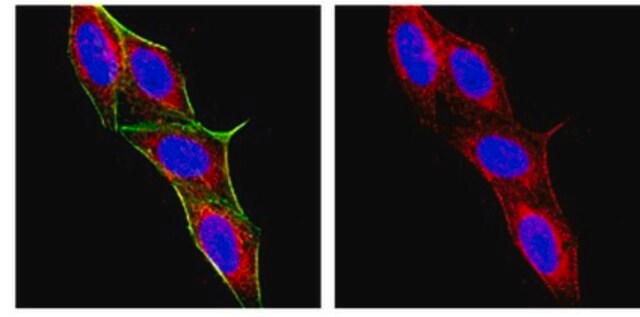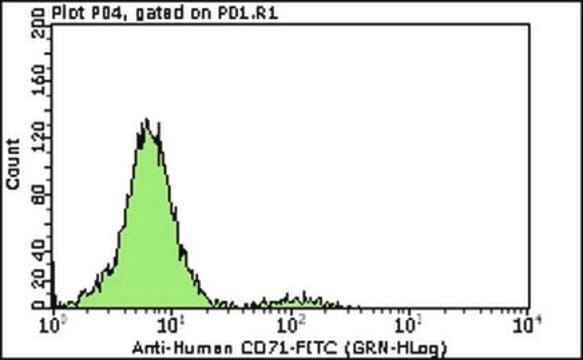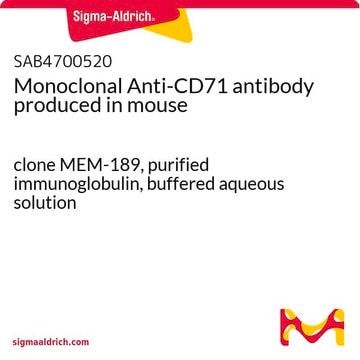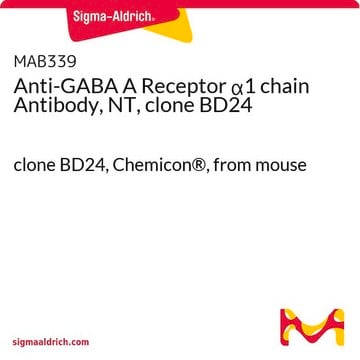MABS1982
Anti-TfR1 Antibody, clone 3B82A1
clone 3B82A1, from mouse
Synonym(s):
Transferrin receptor protein 1, TR:TfR1, Trfr, T9, p90, Cd71
About This Item
ICC
IP
WB
immunocytochemistry: suitable
immunoprecipitation (IP): suitable
western blot: suitable
Recommended Products
biological source
mouse
Quality Level
antibody form
purified antibody
antibody product type
primary antibodies
clone
3B82A1, monoclonal
species reactivity
human
technique(s)
flow cytometry: suitable
immunocytochemistry: suitable
immunoprecipitation (IP): suitable
western blot: suitable
isotype
IgG1κ
NCBI accession no.
UniProt accession no.
shipped in
ambient
target post-translational modification
unmodified
Gene Information
human ... TFRC(7037)
Related Categories
General description
Specificity
Immunogen
Application
Signaling
Immunocytochemistry Analysis: A representative lot detected TfR1 in Immunocytochemistry applications (Johnson, M.B., et. al. (2007). Mol Cell Biol. 18(3):743-54; Vogt, T.M., et. al. (2003). Blood. 101(5):2008-14).
Immunoprecipitation Analysis: A representative lot detected TfR1 in Immunoprecipitation applications (Johnson, M.B., et. al. (2004). Blood. 104(13):4287-93; Vogt, T.M., et. al. (2003). Blood. 101(5):2008-14).
Quality
Flow Cytometry Analysis: 1 µg of this antibody detected TfR1 in 1X10E6 K562 cells.
Target description
Physical form
Storage and Stability
Other Notes
Disclaimer
Not finding the right product?
Try our Product Selector Tool.
Storage Class Code
12 - Non Combustible Liquids
WGK
WGK 1
Flash Point(F)
Not applicable
Flash Point(C)
Not applicable
Certificates of Analysis (COA)
Search for Certificates of Analysis (COA) by entering the products Lot/Batch Number. Lot and Batch Numbers can be found on a product’s label following the words ‘Lot’ or ‘Batch’.
Already Own This Product?
Find documentation for the products that you have recently purchased in the Document Library.
Our team of scientists has experience in all areas of research including Life Science, Material Science, Chemical Synthesis, Chromatography, Analytical and many others.
Contact Technical Service








